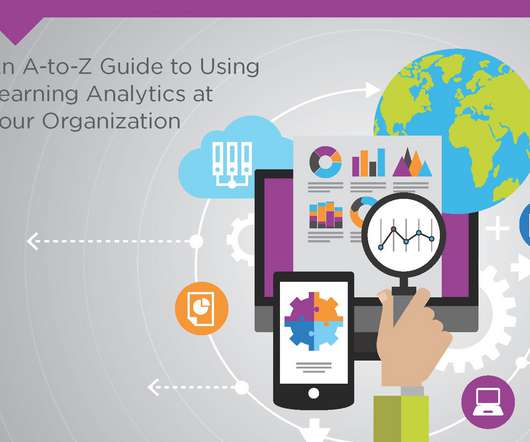Becoming a Learning Culture: Competing in an Age of Disruption
The Performance Improvement Blog
FEBRUARY 17, 2017
Social media allows restaurants, hotels, airlines, and travel services to market directly to us based on our personal interests. The only thing holding companies back from learning at the speed of change is their organizational culture which, for many, is a barrier to learning. Learning is just-in-time, on-demand.



















Let's personalize your content